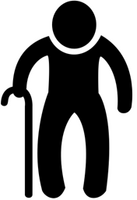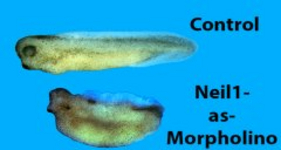Projects Offered
Roopesh Anand Petra Beli Petra Beli/Vassilis Roukos Dorothee Dormann René Ketting Katja Luck Carlotta Martelli Christof Niehrs_Ageing Christof Niehrs_Bioinfo Christof Niehrs_4R Sandra Schick Helle Ulrich Andreas Wachter Johannes Mayer_DCMem Johannes Mayer_DCSkin Wolfram Ruf Tim Sparwasser Uwe WolfrumAgeing, Embryos & Epigenetics
1 PhD project offered in the IPP summer call Molecular Mechanisms in Genome Stability & Gene Regulation

Scientific Background
Ageing is commonly believed to start in adulthood. However, there is increasing evidence that organismic ageing begins already during embryonic development. For example, analyses Down syndrome shows pronounced acceleration of ageing markers already in fetal stages, similar to adult tissues. This indicates that mechanisms of ageing may be productively studied during embryogenesis.
PhD project: Ageing, Embryos & Epigenetics

You will study the role of progeria genes, which lead to premature ageing, in frog (Xenopus) embryos. We have recently shown that epignetic clock is applicable to frogs as it is in humans (Zoller et al., 2023). Using epignetic clock analysis, you will characterize cellular ageing and senescence in developing frog tissues using immunofluorescence microscopy. You will analyze epigenetic profiles in premature ageing embryos by Next Generation Sequencing, to understand the molecular network involved in these phenotypes. You will learn to analyze these Big Data by bioinformatic analysis. You will work in a team of developmental biologists and bioinformaticians. The successful candidate will have a strong background in Molecular or Developmental Biology to study ageing-related phenotype in embryos. You will apply techniques including embryo culture, microinjection, RNA in situ hybridisation, confocal microscopy, Next Generation Sequencing and bioinformatics data analysis.
If you are interested in this project, please select Niehrs (Ageing) as your group preference in the IPP application platform.
Publication relevant to this project
Zoller JA, Parasyraki E, Lu AT, Haghani A, Niehrs C, Horvath S. (2024) DNA methylation clocks for clawed frogs reveal evolutionary conservation of epigenetic aging. Geroscience. 46:945-960. Link